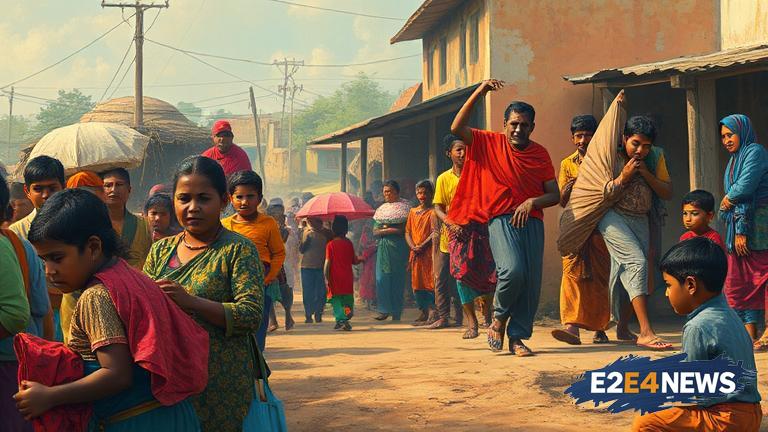The Rohingya crisis has been a longstanding issue, with the Muslim minority group facing persecution and violence in Myanmar. In recent years, the situation has escalated, with a military crackdown in 2017 forcing hundreds of thousands of Rohingya to flee their homes. The crisis has sparked a massive refugee influx, with thousands fleeing to neighboring Bangladesh. The UN has responded to the emergency, with agencies such as the UNHCR and UNICEF providing aid and support to the affected populations. However, the situation remains dire, with many Rohingya refugees facing overcrowding, poor sanitation, and limited access to basic necessities. The crisis has also had a significant impact on the environment, with deforestation and pollution affecting the region. The international community has called for an end to the violence and for the Myanmar government to grant the Rohingya citizenship and basic human rights. The UN has also urged the international community to provide more aid and support to address the crisis. Despite these efforts, the situation remains unresolved, with many Rohingya refugees facing an uncertain future. The crisis has also had a significant impact on regional stability, with concerns about the spread of extremism and the potential for further violence. The UN has warned that the crisis could have long-term consequences, including the potential for further displacement and instability. The international community must continue to pressure the Myanmar government to address the root causes of the crisis and to provide a safe and dignified return for the Rohingya refugees. The UN has also called for increased support for the Rohingya refugees, including access to education, healthcare, and livelihood opportunities. The crisis has highlighted the need for increased international cooperation and coordination to address the root causes of displacement and to provide support to affected populations. The UN has also emphasized the importance of protecting the human rights of the Rohingya, including their right to citizenship and basic dignity. The crisis has sparked a global response, with many countries providing aid and support to the affected populations. However, more needs to be done to address the crisis, including increased support for the UN and other humanitarian agencies. The international community must also continue to pressure the Myanmar government to address the root causes of the crisis and to provide a safe and dignified return for the Rohingya refugees. The crisis has highlighted the need for increased awareness and understanding of the issues affecting the Rohingya, including their history, culture, and experiences. The UN has also emphasized the importance of supporting the Rohingya refugees, including providing access to education, healthcare, and livelihood opportunities. The crisis has sparked a global conversation about the need to protect the human rights of all individuals, regardless of their background or circumstances. The international community must continue to work together to address the crisis and to provide support to the affected populations. The UN has also called for increased support for the host countries, including Bangladesh, which has borne the brunt of the refugee influx. The crisis has highlighted the need for increased international cooperation and coordination to address the root causes of displacement and to provide support to affected populations. The UN has also emphasized the importance of protecting the environment and addressing the impact of the crisis on the region. The crisis has sparked a global response, with many countries providing aid and support to the affected populations. However, more needs to be done to address the crisis, including increased support for the UN and other humanitarian agencies.
